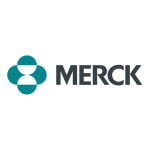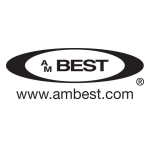PRINCETON, N.J.–(BUSINESS WIRE)–$BMY #AML—Bristol Myers Squibb (NYSE:BMY) today announced that the Phase 3 IDHENTIFY study evaluating IDHIFA® (enasidenib) plus best supportive care (BSC) versus conventional care regimens, which include best supportive care (BSC) only, azacitidine plus BSC, low-dose cytarabine plus BSC or intermediate-dose cytarabine plus BSC, did not meet the primary endpoint of overall survival (OS) in patients with relapsed or refractory acute myeloid leukemia (R/R AML) with an isocitrate dehydrogenase-2 (IDH2) mutation. The safety profile of IDHIFA was consistent with previously reported findings. The company will complete a full evaluation of the IDHENTIFY data and work with investigators to present detailed results at a future medical meeting.
“While we are disappointed by the outcome of the IDHENTIFY study, we remain confident in IDHIFA’s established role as a treatment option for patients with relapsed or refractory AML with an IDH2 mutation and are grateful to all those who participated in the study,” said Noah Berkowitz, M.D., Ph.D., senior vice president, Global Clinical Development, Hematology, Bristol Myers Squibb. “AML is one of the most difficult-to-treat blood cancers, and we’re committed to furthering our research and improving on the standards of care for patients living with this aggressive disease.”
In August 2017, Bristol Myers Squibb received full approval in the U.S. for IDHIFA for the treatment of adult patients with R/R AML with an IDH2 mutation as detected by a U.S. Food and Drug Administration (FDA)-approved test. IDHIFA is the first and only FDA-approved therapy for patients with R/R AML and positive for an IDH2 mutation, which represents up to 19 percent of AML patients. IDHIFA is also approved in Australia and Canada.
About IDHENTIFY
IDHENTIFY (NCT02577406) is an international, multicenter, open-label, randomized, Phase 3 study comparing the efficacy and safety of AG-221 versus conventional care regimens (CCRs), which include continuous 28-day cycles of best supportive care (BSC) only, azacitidine subcutaneously (SC) plus BSC, low-dose cytarabine SC plus BSC, or intermediate-dose cytarabine intravenously plus BSC, in subjects 60 years or older with acute myeloid leukemia (AML) refractory to or relapsed after second- or third-line AML therapy and positive for an isocitrate dehydrogenase (IDH2) mutation. The primary endpoint of the study was overall survival. Key secondary endpoints included overall response rate, event-free survival, duration of response and time to response.
About Acute Myeloid Leukemia
Acute myeloid leukemia (AML) is the most common type of acute leukemia. AML starts in the bone marrow but moves quickly into the blood. Unlike in normal blood cell development, in AML, the rapid buildup of abnormal white blood cells in the bone marrow may interfere with the production of normal blood cells, resulting in decreased healthy white blood cells, red blood cells and platelets. AML is a complex, diverse disease associated with multiple genetic mutations, such as the isocitrate dehydrogenase-2 (IDH2) mutation, and usually worsens quickly and can lead to death if not treated. IDH2 mutations are present in up to 19 percent of AML cases. AML has a high relapse rate, meaning following patients’ initial response to treatment, their disease is likely to return, signifying an unmet need for targeted therapy options. The worldwide incidence of AML is estimated to be over 350,000 cases. In the United States, there will be an estimated 21,450 new cases of AML this year, with an estimated 10,920 deaths resulting from the disease.
Bristol Myers Squibb: Advancing Cancer Research
At Bristol Myers Squibb, patients are at the center of everything we do. The goal of our cancer research is to increase patients’ quality of life, long-term survival and make cure a possibility. We harness our deep scientific experience, cutting-edge technologies and discovery platforms to discover, develop and deliver novel treatments for patients.
Building upon our transformative work and legacy in hematology and Immuno-Oncology that has changed survival expectations for many cancers, our researchers are advancing a deep and diverse pipeline across multiple modalities. In the field of immune cell therapy, this includes registrational chimeric antigen receptor (CAR) T-cell agents for numerous diseases, and a growing early-stage pipeline that expands cell and gene therapy targets, and technologies. We are developing cancer treatments directed at key biological pathways using our protein homeostasis platform, a research capability that has been the basis of our approved therapies for multiple myeloma and several promising compounds in early to mid-stage development. Our scientists are targeting different immune system pathways to address interactions between tumors, the microenvironment and the immune system to further expand upon the progress we have made and help more patients respond to treatment. Combining these approaches is key to delivering potential new options for the treatment of cancer and addressing the growing issue of resistance to immunotherapy. We source innovation internally, and in collaboration with academia, government, advocacy groups and biotechnology companies, to help make the promise of transformational medicines a reality for patients.
About IDHIFA
IDHIFA (enasidenib) is approved by the U.S. Food and Drug Administration (FDA) for the treatment of adult patients with relapsed or refractory acute myeloid leukemia with an isocitrate dehydrogenase-2 mutation as detected by an FDA-approved test. IDHIFA is also approved in Australia and Canada.
Important Safety Information
BOXED WARNING: DIFFERENTIATION SYNDROME
Patients treated with IDHIFA have experienced symptoms of differentiation syndrome, which can be fatal if not treated. Symptoms may include fever, dyspnea, acute respiratory distress, pulmonary infiltrates, pleural or pericardial effusions, rapid weight gain or peripheral edema, lymphadenopathy, bone pain, and hepatic, renal, or multi-organ dysfunction. If differentiation syndrome is suspected, initiate corticosteroid therapy and hemodynamic monitoring until symptom resolution.
WARNINGS AND PRECAUTIONS
Differentiation Syndrome: See Boxed WARNING. In the AG221-C-001 Phase 2 clinical trial, 14% of patients treated with IDHIFA experienced differentiation syndrome, which may be life-threatening or fatal if not treated. Differentiation syndrome has been observed with and without concomitant hyperleukocytosis, as early as 1 day and at up to 5 months after IDHIFA initiation. Symptoms in patients treated with IDHIFA included acute respiratory distress represented by dyspnea and/or hypoxia and need for supplemental oxygen; pulmonary infiltrates and pleural effusion; renal impairment; fever; lymphadenopathy; bone pain; peripheral edema with rapid weight gain; and pericardial effusion. Hepatic, renal, and multi-organ dysfunction have also been observed. If differentiation syndrome is suspected, initiate systemic corticosteroids and hemodynamic monitoring until improvement. Taper corticosteroids only after resolution of symptoms. Differentiation syndrome symptoms may recur with premature discontinuation of corticosteroids. If severe pulmonary symptoms requiring intubation or ventilator support and/or renal dysfunction persist for more than 48 hours after initiation of corticosteroids, interrupt IDHIFA until signs and symptoms are no longer severe. Hospitalization for close observation and monitoring of patients with pulmonary and/or renal manifestation is recommended.
Embryo-Fetal Toxicity: Based on animal embryo-fetal toxicity studies, IDHIFA can cause embryo-fetal harm when administered to a pregnant woman. Advise females of reproductive potential and males with female partners of reproductive potential to use effective contraception during treatment with IDHIFA and for at least 2 months after the last dose. Pregnant women, patients becoming pregnant while receiving IDHIFA, or male patients with pregnant female partners should be apprised of the potential risk to the fetus.
ADVERSE REACTIONS
- The most common adverse reactions (≥20%) included total bilirubin increased (81%), calcium decreased (74%), nausea (50%), diarrhea (43%), potassium decreased (41%), vomiting (34%), decreased appetite (34%), and phosphorus decreased (27%)
- The most frequently reported ≥Grade 3 adverse reactions (≥5%) included total bilirubin increased (15%), potassium decreased (15%), phosphorus decreased (8%), calcium decreased (8%), diarrhea (8%), differentiation syndrome (7%), non-infectious leukocytosis (6%), tumor lysis syndrome (6%), and nausea (5%)
- Serious adverse reactions were reported in 77.1% of patients. The most frequent serious adverse reactions (≥2%) were leukocytosis (10%), diarrhea (6%), nausea (5%), vomiting (3%), decreased appetite (3%), tumor lysis syndrome (5%), and differentiation syndrome (8%). Differentiation syndrome events characterized as serious included pyrexia, renal failure acute, hypoxia, respiratory failure, and multi-organ failure
LACTATION
Many drugs are excreted in human milk and because of the potential for adverse reactions in breastfed infants, advise women not to breastfeed during treatment with IDHIFA and for at least 2 months after the last dose.
Please see full Prescribing Information, including Boxed WARNING
About Bristol Myers Squibb
Bristol Myers Squibb is a global biopharmaceutical company whose mission is to discover, develop and deliver innovative medicines that help patients prevail over serious diseases. For more information about Bristol Myers Squibb, visit us at BMS.com or follow us on LinkedIn, Twitter, YouTube, Facebook and Instagram.
Celgene and Juno Therapeutics are wholly owned subsidiaries of Bristol-Myers Squibb Company. In certain countries outside the U.S., due to local laws, Celgene and Juno Therapeutics are referred to as, Celgene, a Bristol-Myers Squibb company and Juno Therapeutics, a Bristol-Myers Squibb company.
Cautionary Statement Regarding Forward-Looking Statements
This press release contains “forward-looking statements” within the meaning of the Private Securities Litigation Reform Act of 1995 regarding, among other things, the research, development and commercialization of pharmaceutical products. All statements that are not statements of historical facts are, or may be deemed to be, forward-looking statements. Such forward-looking statements are based on historical performance and current expectations and projections about our future financial results, goals, plans and objectives and involve inherent risks, assumptions and uncertainties, including internal or external factors that could delay, divert or change any of them in the next several years, that are difficult to predict, may be beyond our control and could cause our future financial results, goals, plans and objectives to differ materially from those expressed in, or implied by, the statements. These risks, assumptions, uncertainties and other factors include, among others, the possibility of unfavorable results from further clinical trials involving IDHIFA (enasidenib). No forward-looking statement can be guaranteed. Forward-looking statements in this press release should be evaluated together with the many risks and uncertainties that affect Bristol Myers Squibb’s business and market, particularly those identified in the cautionary statement and risk factors discussion in Bristol Myers Squibb’s Annual Report on Form 10-K for the year ended December 31, 2019, as updated by our subsequent Quarterly Reports on Form 10-Q, Current Reports on Form 8-K and other filings with the Securities and Exchange Commission. The forward-looking statements included in this document are made only as of the date of this document and except as otherwise required by applicable law, Bristol Myers Squibb undertakes no obligation to publicly update or revise any forward-looking statement, whether as a result of new information, future events, changed circumstances or otherwise.
Contacts
Media Inquiries:
media@bms.com
609-252-3345
Rose Weldon
Investors:
Tim Power
609-252-7509
Nina Goworek
908-673-9711



.jpg)





.jpg)
